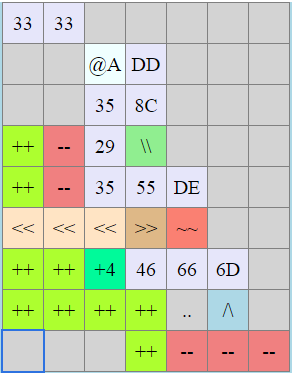Write a program that takes no input and prints Hello, World! to stdout or your language's closest alternative. The catch is that each line in your program must only contain printable ASCII characters and it must be in lexicographical order, a.k.a. sorted.
Here are all 95 printable ASCII characters in order:
!"#$%&'()*+,-./0123456789:;<=>?@ABCDEFGHIJKLMNOPQRSTUVWXYZ[\]^_`abcdefghijklmnopqrstuvwxyz{|}~
So, for example, the line !!A0~ would be invalid because the A and 0 are out of order. The line !!0A~ would be valid.
Each line in your program may be any length and there may be any number of lines. Empty lines are considered sorted. Each of the newlines in your program must be the same (no mixing \n and \r\n). Tabs and other non-printable ASCII characters are forbidden.
Due to popular demand, the win condition has been switched around:
The submission with the fewest lines wins. Tiebreaker goes to the shortest program (newlines count as single characters).
Only Hello, World! and an optional trailing newline should be output. Note that HQ9+ is invalid since it outputs hello, world. I may forbid languages similar to HQ9+ that have one character "Hello, World!" commands due to their triviality.
Hint:
This is definitely possible in Unary and Lenguage, though not very concisely.

